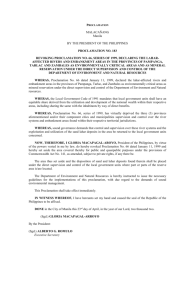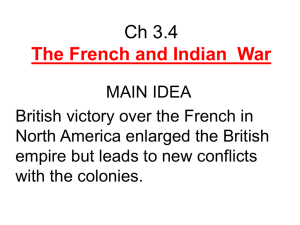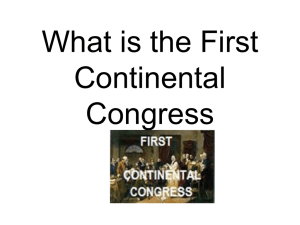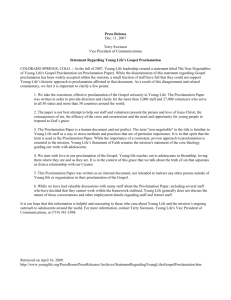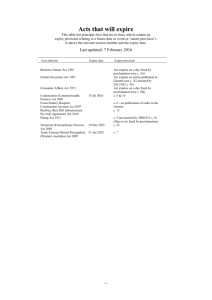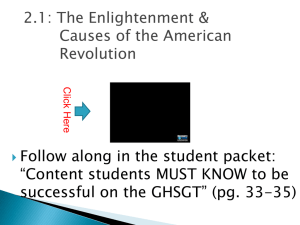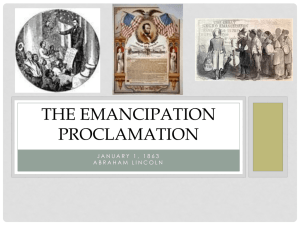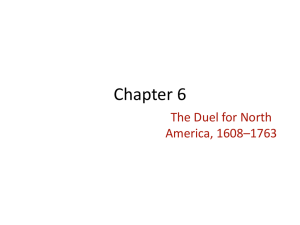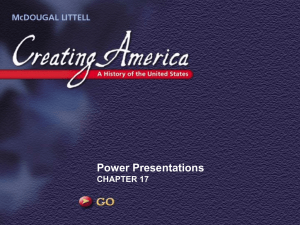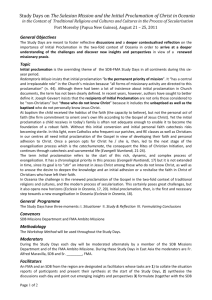Seeds of the Revolution: A Close Reading of the Proclamation of
advertisement
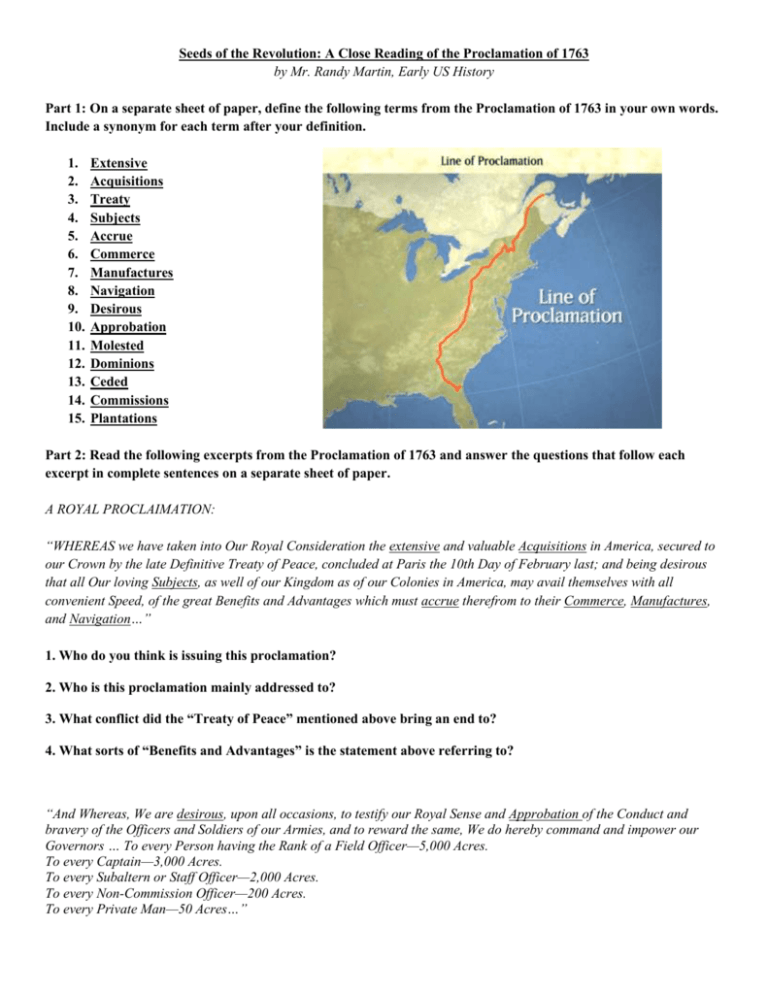
Seeds of the Revolution: A Close Reading of the Proclamation of 1763 by Mr. Randy Martin, Early US History Part 1: On a separate sheet of paper, define the following terms from the Proclamation of 1763 in your own words. Include a synonym for each term after your definition. 1. 2. 3. 4. 5. 6. 7. 8. 9. 10. 11. 12. 13. 14. 15. Extensive Acquisitions Treaty Subjects Accrue Commerce Manufactures Navigation Desirous Approbation Molested Dominions Ceded Commissions Plantations Part 2: Read the following excerpts from the Proclamation of 1763 and answer the questions that follow each excerpt in complete sentences on a separate sheet of paper. A ROYAL PROCLAIMATION: “WHEREAS we have taken into Our Royal Consideration the extensive and valuable Acquisitions in America, secured to our Crown by the late Definitive Treaty of Peace, concluded at Paris the 10th Day of February last; and being desirous that all Our loving Subjects, as well of our Kingdom as of our Colonies in America, may avail themselves with all convenient Speed, of the great Benefits and Advantages which must accrue therefrom to their Commerce, Manufactures, and Navigation…” 1. Who do you think is issuing this proclamation? 2. Who is this proclamation mainly addressed to? 3. What conflict did the “Treaty of Peace” mentioned above bring an end to? 4. What sorts of “Benefits and Advantages” is the statement above referring to? “And Whereas, We are desirous, upon all occasions, to testify our Royal Sense and Approbation of the Conduct and bravery of the Officers and Soldiers of our Armies, and to reward the same, We do hereby command and impower our Governors … To every Person having the Rank of a Field Officer—5,000 Acres. To every Captain—3,000 Acres. To every Subaltern or Staff Officer—2,000 Acres. To every Non-Commission Officer—200 Acres. To every Private Man—50 Acres…” 5. What does the passage above suggest about Britain’s attitude towards the soldiers who fought in this conflict? 6. What is being given to each solder? “And whereas it is just and reasonable, and essential to our Interest, and the Security of our Colonies, that the several Nations or Tribes of Indians with whom We are connected, and who live under our Protection, should not be molested or disturbed in the Possession of such Parts of Our Dominions and Territories as, not having been ceded to or purchased by Us, are reserved to them, or any of them, as their Hunting Grounds —We do therefore, with the Advice of our Privy Council, declare it to be our Royal Will and Pleasure, that no Governor or Commander in Chief in any of our colonies… pass any Patents for Lands beyond the Bounds of their respective Governments, as described in their Commissions: as also that no Governor or Commander in Chief in any of our other Colonies or Plantations in America do presume for the present, and until our further Pleasure be known, to grant Warrants of Survey, or pass Patents for any Lands beyond the Heads or Sources of any of the Rivers which fall into the Atlantic Ocean from the West and North West, or upon any Lands whatever, which, not having been ceded to or purchased by Us as aforesaid, are reserved to the said Indians, or any of them… And We do further strictly enjoin and require all Persons whatever who have either wilfully or inadvertently seated themselves upon any Lands within the Countries above described or upon any other Lands which, not having been ceded to or purchased by Us, are still reserved to the said Indians as aforesaid, forthwith to remove themselves from such Settlements… Given at our Court at St. James's the 7th Day of October 1763, in the Third Year of our Reign”. 7. When and where was this proclamation written? 8. Who and what is listed as “under our Protection” in this passage? Why do you think they are being protected? 9. What is the passage above telling the American colonists? 10. How does the passage above differ in tone and meaning from the first two passages? 11. Ultimately, why do you think this proclamation was written? 12. What overall rights and rewards does this proclamation give to the American colonists? 13. What overall rights and freedoms does this proclamation take away from the American colonists? 14. What rights and freedoms does this proclamation give to Native Americans? 14. What rights and freedoms does this proclamation take away from Native Americans? 15. If you were an American colonist, how would you react to this proclamation? 16. If you were a Native American, how would you react to this proclamation? 17. If you were a British citizen, how would you react to this proclamation? 18. Do you think that the British had the right to issue this proclamation? Why or why not? 19. Do you think that the American colonists had the right to disobey this proclamation? Why or why not? 20. In a brief paragraph, summarize the Proclamation of 1763 using your own words.

